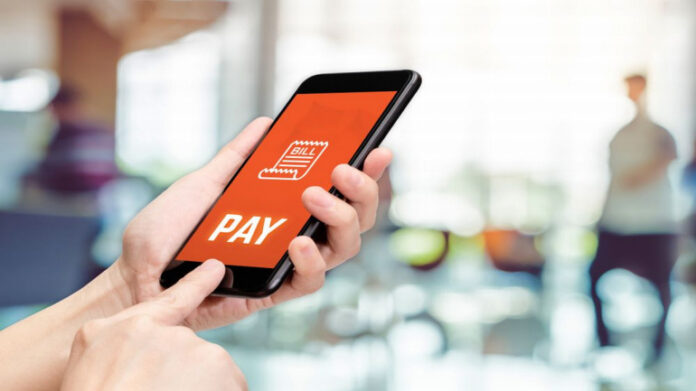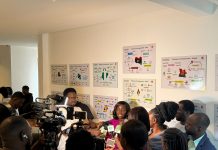KIGALI, Rwanda, October 27, 2022/ — New research from Vodafone Group, Vodacom Group (https://www.Vodacom.com/), Safaricom, and the United Nations Development Programme (UNDP) indicates that the successful deployment and adoption of mobile financial services is associated with a positive impact on GDP growth in developing markets as it helps businesses to reduce cost, access credit to invest, and to connect with consumers that were previously excluded from financial services.
The econometric modelling research[1] – which examined 49 countries in Africa, Asia, and Latin America – found that countries with successful mobile money services had an annual GDP per capita growth rate up to 1 percentage point higher than countries where mobile money platforms had not been successful or not introduced.
Based on previous World Bank research on the relationship between economic growth and reductions in the number of people living in poverty[2], this GDP per capita growth implies that countries with successful mobile money adoption could reduce poverty by around 2.6%.
The analysis was conducted as part of the companies’ Africa.Connected (https://bit.ly/3SGqW6l) campaign, an initiative to drive sustainable development through collaboration and help close the divides that prevent progress in Africa’s key economic sectors.
The findings are part of a new research paper, Digital Finance Platforms to Empower All, the fourth research paper developed and released under Africa.Connected umbrella.
Sitoyo Lopokoiyit, CEO of M-Pesa Africa and Chief Financial Services Officer at Safaricom, said:
“Mobile financial services platforms like M-Pesa are vital drivers of financial inclusion in society which can improve individual life chances and enable enterprises to launch and expand, bringing wealth and jobs into developing economies. There remains though barriers both to accessing platforms – including digital literacy and smartphone accessibility – and to developing them – with an un-level regulatory playing field for non-traditional financial services providers in many countries.”
As part of the Africa.Connected research, consumer surveys were conducted focusing on users of M-Pesa in Kenya and Tanzania, and results were extrapolated to Ghana and Mozambique. A business survey was also conducted in Kenya. The resulting research underpinned the continuing importance of the world’s first mobile money service 15 years after it launched in 2007. The researchers estimated that:
17.6 million current users in the four countries did not have access to any formal financial services before using M-Pesa;
98% of businesses surveyed said that M-Pesa helps them to do business, with the main benefits of M-Pesa being its facilitation of faster and safer payments and enabling the sale of goods and services online; and
95% of businesses surveyed indicated that they use M-Pesa for at least half of their business transactions.
Ulrika Modeer, UN Assistant Secretary-General and Director of the Bureau of External Relations and Advocacy at UNDP, said:
“Financial inclusion is both a pre-condition and a key enabler for meeting many of the UN’s Sustainable Development Goals, including reducing poverty, boosting economic growth, promoting market access and championing investment in key sectors like education, agriculture, and healthcare. But more importantly, it is about putting people at the center, empowering them with more agency over their money and increasing their resilience. Eliminating financial exclusion in Africa, and across the globe, must be a priority if we are to deliver on inclusive, sustainable prosperity for all on a healthy planet.”
Click here to read the full Africa.connected financial inclusion paper:https://bit.ly/3U4QAmp
[1]The econometric model made use of data covering the period 2003 – 2019. More recent data was not included in the modelling due to the effects of the pandemic.
[2] Adams, 2003, Economic Growth, Inequality, and Poverty: Findings from a New Data Set. World Bank. Available online: https://bit.ly/3TQWoQi
About Vodacom Group:
Vodacom is a leading and purpose-led African connectivity, digital and financial services company. The Group, including Safaricom, serves 130 million customers spanning across the consumer and enterprise segments. From our roots in South Africa, we have grown our business to include operations in Tanzania, the DRC, Mozambique, Lesotho and Kenya.
Our population reach across our markets is over 310 million people. This is expected to increase to over half a billion after we launch in Ethiopia and complete the Vodafone Egypt transaction. Through Vodacom Business Africa (VBA), we offer business-managed services to enterprises in 48 countries. Vodacom is majority-owned by Vodafone (60.5% holding), one of the world’s largest communications companies by revenue.











































